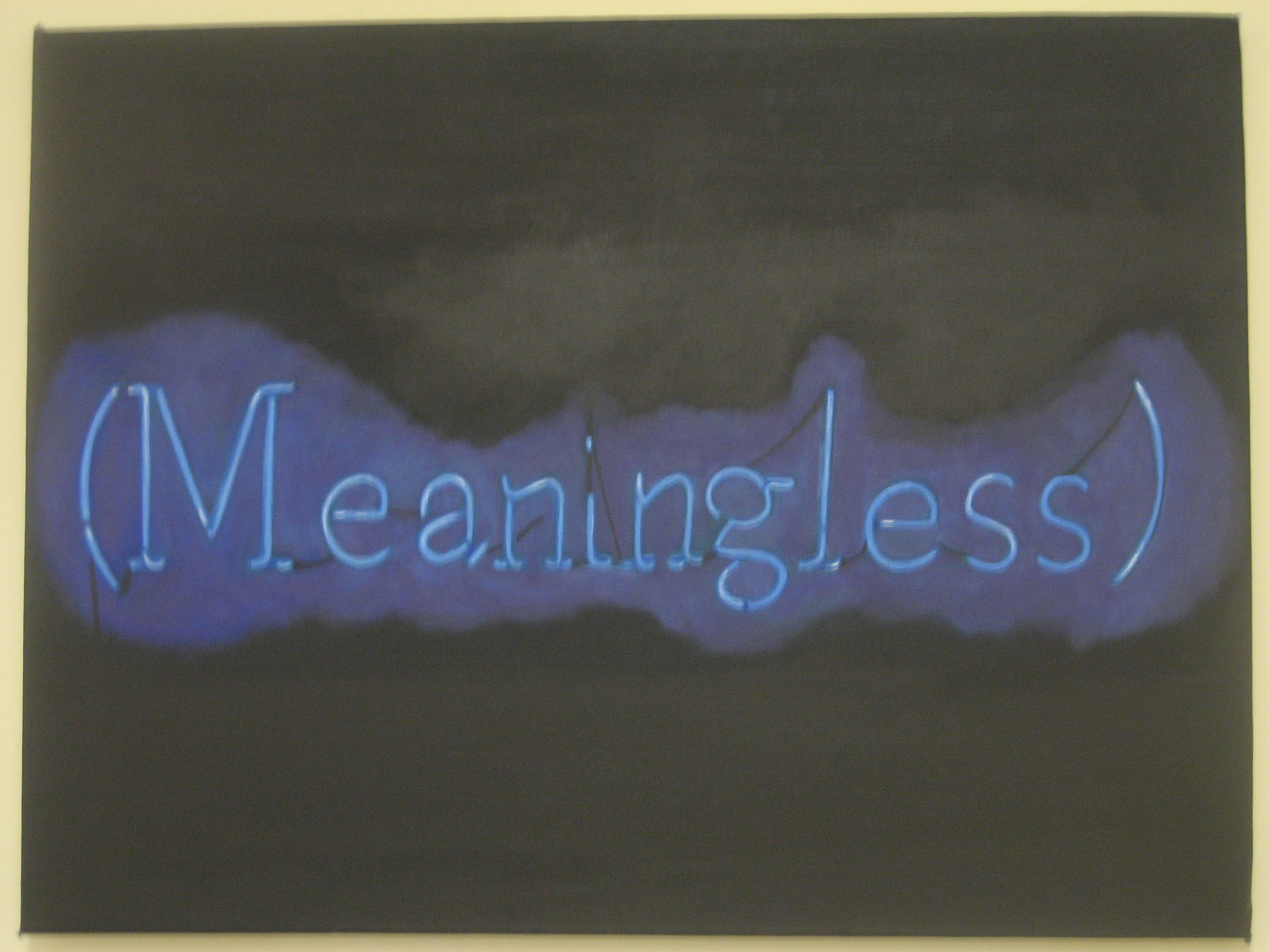 The book of Ecclesiastes opens in this way:
The book of Ecclesiastes opens in this way:
The words of the Teacher, son of David, king in Jerusalem:
“Meaningless! Meaningless!”
says the Teacher.
“Utterly meaningless!
Everything is meaningless.”
The word meaningless seems to go against everything we've heard about spiritual formation, doesn't it?
In classes, sermons and lectures, we read passages of sacred texts and we are asked to make meaning of them.
I can't remember a Sunday School class I've attended when there was not a "life application" section of the discussion.
I can't remember a workshop I've attended where I wasn't asked to report at the end "what I learned today."
I can't remember a time when I haven't been that person who doesn't try to make sense out of everything that happens to me.
Furthermore, how can everything be meaningless? Is this really in the Bible? We might wonder . . .
Well, the past several weeks I've stuck close to meaninglessness even though it seems to go against every meaning-making fiber in my teacher, preacher and writer self.
Because sometimes life just doesn't make sense. Sometimes our "everything happens for a reason" mantras lead us to a God that seems cruel and incompatible with everything else we know about the Divine. Sometimes meaning doesn't come. And we need to keep living life anyway.
When I was in the ER for the first time during my whole surgery ordeal, I started thinking that I should remember all the details of being wheeled down a long hallway for a CT scan.
I told myself I should notice what color the walls were, what the air smelled like, how the lighting fell on my bed and so on-- all the details that my writing brain could use to help make meaning of the situation later. Isn't this what my best writing teachers had prepared me to do in this very moment?
But then I stopped myself. I simply couldn't think like that. I couldn't make meaning.
Will there come a day when I want to make meaning of this situation and other puzzling situations in my life? Maybe.
But my point is that I've learned that we don't always have to.
Ecclesiastes is a wisdom book after all.
It's a book written by a person who I can imagine saw with his own eyes some of the worst of life's troubles. It's a book written by a person who I can imagine looked life's horrors in the face and desperately wanted to find purpose. And, as much as he wanted to throw a "everything happens for a reason" band-aid on life, he couldn't. He couldn't because he needed to tell the truth.
“Meaningless! Meaningless!”
says the Teacher.
“Utterly meaningless!
Everything is meaningless.”
It frustrates me that we in the church and the larger spiritual community cling to linear thinking to the decree that we're kept from the deeper waters of faith. The deeper waters called the unknown.
We say, "Oh it was so sad that X happened . . . but look what blessing came afterwards!" (As if to assign meaning to devastating and senseless tragedies)
Sure, life has its ebbs and flows. Most human lives have both good and bad on their plates at some point along in the journey. But who are we to say that we always know that X happened so that Y could occur?
Some situations of life can be meaningless.
Meaninglessness is not a reason to plunge into despair, however. Meaninglessness, I am learning is a gift for contentment.
When we come to realize that not every experience in life has to be seen as a puzzle piece that leads to enlightenment right away, then peace of what is can find us.
We call a spade a spade: meaningless. And, then we move on.
After all, didn't the Ecclesiastes writer go on to say this:
There is a time for everything,
and a season for every activity under the heavens
Meaninglessness is not the whole story.